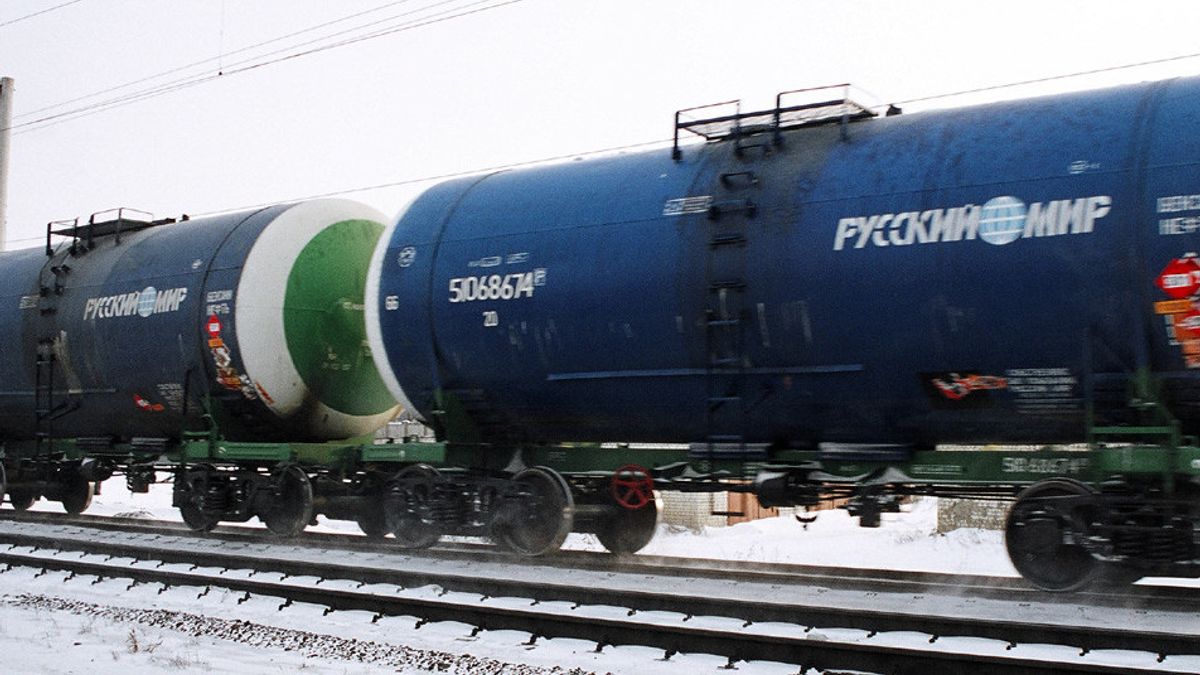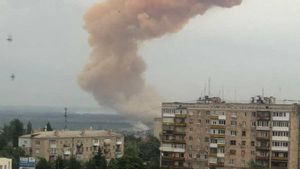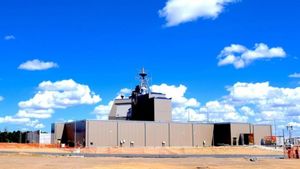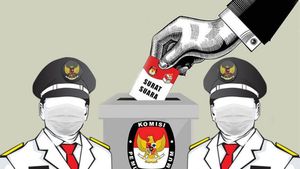JAKARTA - Russia earned 93 billion euros or around IDR 1.427.958.606.660.000 from fossil fuel exports during the first 100 days of its war in Ukraine.
Interestingly, in a research report published Monday, most of it was sent to the European Union, which imposed stringent sanctions on Russia over the invasion, with Germany and Italy being the biggest importers of the Blue Continent.
The report from the independent Finland-based Center for Energy and Clean Air Research (CREA) comes as Kyiv urges the West to cut off all trade with Russia in the hope of cutting off the Kremlin's finances.
Earlier this month, the European Union agreed to cut most of Russia's oil imports, which the continent relies heavily on. Although the bloc aims to reduce gas shipments by two-thirds this year, the embargo will not occur this time.
According to the report, the European Union took 61 percent of Russia's fossil fuel exports during the first 100 days of the war, worth around 57 billion euros.
If broken down further, the main importer is China worth 12.6 billion euros. Behind him, there are two European Union countries that are included in the list of the top three importers of Russian fuel, namely Germany with 12.1 billion euros and Italy with 7.8 billion euros.
The majority of Russia's fossil fuel revenue comes from sales of crude oil worth 46 billion euros, followed by pipeline gas, oil products, liquefied natural gas (LNG) and coal.

Even as Russian exports plunged in May, with countries and companies avoiding supplies due to the invasion of Ukraine, global increases in fossil fuel prices continued to fill the Kremlin's coffers, with export earnings hitting record highs.
Yes, the average export price of Russian fuel is about 60 percent higher than last year, according to CREA.
Interestingly, several countries have increased their purchases from Moscow, including China, India, the United Arab Emirates (UAE) and France, the report added.
VOIR éGALEMENT:
"As the EU is considering tougher sanctions against Russia, France has increased its imports to become the world's biggest LNG buyer," CREA analyst Lauri Myllyvirta said, citing Daily Sabah from AFP on June 14.
Since most of these were spot purchases rather than long-term contracts, France consciously decided to use Russian energy after Moscow's invasion of Ukraine, Myllyvirta added.
He added that it was necessary to harmonize actions with words related to the Russian fuel embargo.
The English, Chinese, Japanese, Arabic, and French versions are automatically generated by the AI. So there may still be inaccuracies in translating, please always see Indonesian as our main language. (system supported by DigitalSiber.id)


















